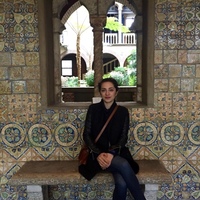To download the episode, subscribe to us in the iTunes store, Spotify Podcasts, and Google Play.
In this episode, Rustin interviews Golbarg Rekabtalaei, an Assistant Professor of History at Seton Hall University. She is the author of Iranian Cosmopolitanism: A Cinematic History, published by Cambridge University Press in 2019.
Dr. Rekabtalaei traces how the diverse ethnic, linguistic, and religious backgrounds of cinematographers, cinema owners, and cinema goers shaped Iran’s urban culture and its citizenry’s understanding of modernity. The interview opens with a discussion of the first films produced in Iran: what they looked like, where they were shown, and who was watching them. Then, Dr. Rekabtalaei explains how this cosmopolitanism fed into Iranian national identity and notions of sovereignty in the 1920s and 1930s. The conversation ends with the emergence of both popular cinema (derogatorily labelled “Film Farsi“) and alternative cinema (sinema-ye motevavet) in the 1950s and 60s.
Guest

Golbarg Rekabtalaei
Golbarg Rekabtalaei is a cultural and social historian of modern Iran and modern Middle East at large. Her research focuses on the relationships between culture and cultural production, modernity, cosmopolitanism, urbanisation, nationalism, and revolutions.
Host
 Rustin Zarkar
Rustin Zarkar
Ajam Editor
Episode No. 19
Release Date: 20 July 2020
Recording Location: New York City, NY.
Produced by Rustin Zarkar and Ali Karjoo-Ravary
Audio editing: Nicholas Gunty
Music: Yavaran (Intro: “404 day in heaven” Outro: “Har Chi“)
Image: Scene from the 1933 film Hajji Aqa, the Cinema Actor











